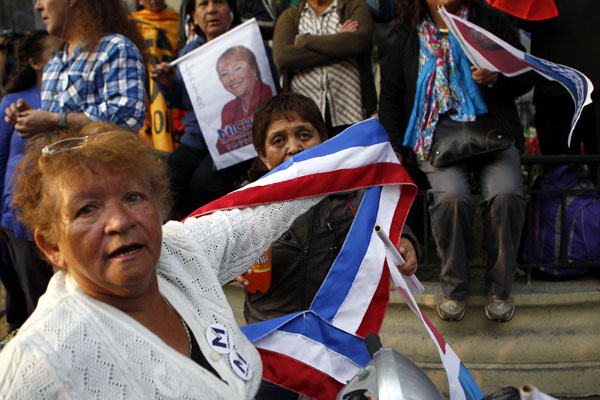

 |
|
Supporters of Chilean presidential candidate Michelle Bachelet gather after the first round of presidential election in Santiago, November 17, 2013. [Photo/Agencies] |
Echoes of past
Chile is an economic success story in Latin America but the showdown between Bachelet and Matthei has revived memories of darker days when socialist president Salvador Allende was overthrown by General Augusto Pinochet in a 1973 coup that ushered in 17 years of dictatorship.
Bachelet and her father were victims of torture during the Pinochet years, while Matthei's father was a general in the dictator's junta.
The two men had become friends when they were posted to the same airforce base in the 1950s, and where their daughters played together as children.
Matthei supported Pinochet in the 1998 plebiscite on his rule, and the 40th anniversary of the coup in September left her facing awkward questions just as the presidential campaign was getting going.
She was also held back by dissatisfaction with Pinera's rule. Despite healthy economic growth and plaudits for its fiscal responsibility, the government is seen as out of touch and slow to respond to demands for change.
The sometimes-violent student demonstrations demanding free education have not helped the government's image.
Assuming she wins in December, Bachelet will hope to have gained some breathing space by bringing the Communist Party into her Nueva Mayoria coalition. The party has strong links with the student protesters, and some former student leaders - including Camila Vallejo, the face of the movement - look set to enter the lower house after Sunday's vote.
But they are likely to prove prickly allies, and their support will not be unconditional if Bachelet faces a stalemate in Congress or has to water down her reforms to get them through, once she takes the reins in March 2014.









